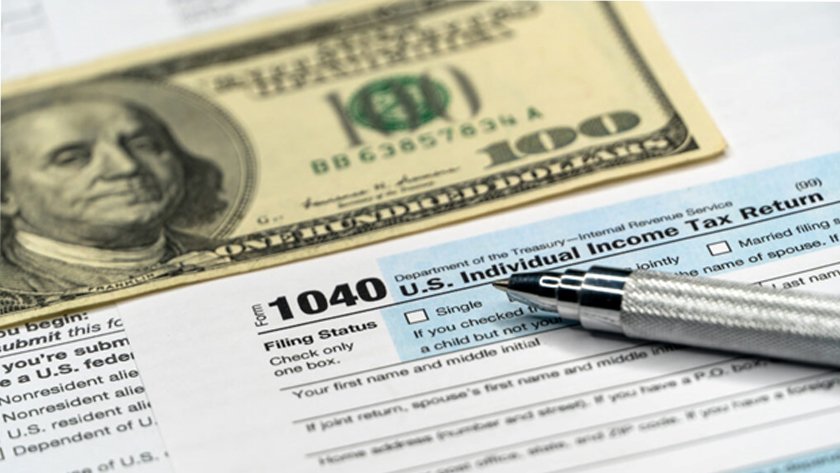Cryptocurrency is a digital asset that you can use as a medium of exchange or a store of value. It is powered by blockchain technology, a decentralized ledger that records and verifies all transactions. Cryptocurrency has gained popularity recently due to its potential to offer faster, cheaper, and more secure transactions than traditional payment methods.
However, cryptocurrency also comes with tax implications that many investors may not be aware of. The IRS treats cryptocurrency as a capital asset, meaning you may owe taxes whenever you sell, trade, or use it for purchases. You may also earn income from cryptocurrency activities, such as mining, staking, or lending, taxed as ordinary income.
This blog will explain how you should tax your cryptocurrency, what forms you need to report it on your tax return, and what steps you can take to minimize your tax liability. We will also provide some tips on how to keep track of your cryptocurrency transactions and records.
Table of Contents
How Is Cryptocurrency Taxed?
The IRS considers cryptocurrency as property, not currency, for tax purposes. This means that you are triggering a taxable event every time you sell, trade, or use cryptocurrency. Depending on how long you held the cryptocurrency and how much it appreciated or depreciated, you may have to pay capital gains taxes or report capital losses.
Capital Gains and Losses
https://www.irs.gov/forms-pubs/about-schedule-d-form-1040 differ between your cost basis (the amount you paid for the cryptocurrency) and your selling price (the amount you received). You have a capital gain if you sell your cryptocurrency for more than your cost basis. You have a capital loss if you sell it for less than your cost basis.
The tax rate you pay on your capital gains depends on how long you hold the cryptocurrency before selling it. If you held it for over a year, you qualify for the long-term capital gains rate, which ranges from 0% to 20%, depending on your income level. If you held it for one year or less, you are subject to the short-term capital gains rate, which is the same as your ordinary income tax rate, which can be as high as 37%.
You can use Form 8949 to report cryptocurrency sales and calculate capital gains or losses. You will also need to report them on Schedule D of Form 1040.
Income from Cryptocurrency Activities
Besides selling or trading cryptocurrency, you may also earn income from various cryptocurrency activities, such as:
Mining: This is the process of using computer power to validate transactions on the blockchain and create new coins. The IRS considers mining income as self-employment income, subject to income tax and self-employment tax (15.3%).
Staking: This is the process of locking up your coins in a network to earn rewards for validating transactions. The IRS considers staking income ordinary, taxed at your marginal tax rate.
Lending: Lending your coins to other users or platforms in exchange for interest payments. The IRS considers lending income as interest income, taxed at your ordinary income tax rate.
Airdrops: This is when you receive free coins or tokens from a project or platform. The IRS considers airdrops as ordinary income, taxed at your fair market value at the time of receipt.
Forks: This is when a blockchain splits into two or more versions, creating new coins or tokens. The IRS considers forks as ordinary income, taxed at your fair market value at receipt.
You must report your income from cryptocurrency activities on Schedule 1 of Form 1040. You will also need to report any expenses related to these activities on Schedule C of Form 1040 if they are considered business expenses.
How to Report Cryptocurrency on Your Tax Return
To properly report cryptocurrency on your tax return, you will need to gather some information and documents, such as:
Your transaction history includes the dates, amounts, and prices of all your cryptocurrency transactions during the year. You can obtain this information from your wallet or exchange platform.
Your cost basis is the amount you paid for each cryptocurrency unit, including fees.
Your fair market value: This is the cryptocurrency’s price at the time of each transaction, expressed in U.S. dollars. You can use historical price data from reputable sources, such as CoinMarketCap or CoinGecko, to determine your fair market value.
Your tax forms: Depending on your situation, you may need to file one or more of the following forms related to cryptocurrency:
Form 8949 is where you report your capital gains and losses from cryptocurrency sales and trades.
Schedule D: You summarize your capital gains and losses from Form 8949 and other sources.
Schedule 1: This is where you report your income from cryptocurrency activities, such as mining, staking, lending, airdrops, or forks.
Schedule C: This is where you report your business income and expenses from cryptocurrency activities, if applicable.
Form 1040: This is your main tax return form, where you report your total income, deductions, credits, and taxes.
FinCEN Form 114: This is where you report your foreign financial accounts, including cryptocurrency accounts held on foreign exchanges or platforms if the total value exceeds $10,000 at any point during the year.
To report cryptocurrency on your tax return, you must fill out these forms and attach them to your tax return. You can also use tax software or services to help you automatically import your cryptocurrency transactions and generate your tax forms.
How to Minimize Your Cryptocurrency Tax Liability
Paying taxes on cryptocurrency can be a burden, especially if you have a lot of transactions or high capital gains. However, some strategies can help you reduce your tax liability, such as:
Holding for more than one year: If you hold your cryptocurrency for more than one year before selling or trading it, you can qualify for the lower long-term capital gains rate, saving you up to 17% in taxes compared to the short-term rate.
Harvesting losses: If you have any cryptocurrency that has lost value since you bought it, you can sell it to realize a capital loss. You can use this loss to offset your capital gains or up to $3,000 of your ordinary income. If your losses exceed your gains and income, you can carry them to future years.
Donating to charity: If you have any cryptocurrency that has appreciated in value since you bought it, you can donate it to a qualified charity and claim a deduction for the full fair market value at the time of donation. This way, you can avoid paying capital gains taxes on the appreciation and reduce your taxable income.
Using tax-advantaged accounts: If you have access to a tax-advantaged account, such as an IRA or a 401(k), you can use it to invest in cryptocurrency and defer or eliminate taxes on your gains. However, not all accounts allow cryptocurrency investments and fees and risks may be involved.
These strategies can help you lower your tax bill, but they also have rules and limitations you must follow. You should consult a tax professional before implementing any of them.
How to Keep Track of Your Cryptocurrency Transactions and Records
One of the biggest challenges of reporting cryptocurrency on your taxes is keeping track of all your transactions and records. With hundreds or thousands of transactions across multiple platforms and wallets, remembering and organizing everything can be hard.
To make your life easier, here are some tips on how to keep track of your cryptocurrency transactions and records:
Use a spreadsheet or an app: You can use a spreadsheet or an app to record all your cryptocurrency transactions throughout the year. You should include information such as the date, amount, price, fees, and type of each transaction. You should also regularly update your spreadsheet or app and back it up securely.
Use a crypto tax software or service: You can use a crypto tax software or service that can automatically sync with your exchanges and wallets and import your transactions. Some examples of crypto tax software or services are CoinLedger, ZenLedger, Koinly, CoinTracker, CryptoTrader Tax, TokenTax, and BearTax. These tools can also help you calculate capital gains and losses and generate tax forms.
Keep receipts and confirmations: You should keep receipts and confirmations of all your cryptocurrency transactions as proof of purchase or sale. It would be best to keep screenshots or printouts of relevant information from your exchanges or wallets, such as balances, prices, fees, and addresses.
Store your records safely: You should store all your cryptocurrency records in a safe and secure place, such as a cloud storage service, a USB drive, or a paper wallet. You should also encrypt your records and protect them with passwords or keys. You should keep your records for at least three years or longer if you are subject to audits or investigations.
Conclusion
Cryptocurrency is an exciting and innovative technology offering many benefits and opportunities. However, it also comes with tax responsibilities that you must be aware of and comply with. By understanding you should tax your cryptocurrency, how to report it on your tax return, how to minimize your tax liability, and how to keep track of your transactions and records, you can avoid tax headaches and penalties and enjoy your crypto journey.
If you need help with your cryptocurrency taxes, you can contact Barron Income Tax, a professional tax service specializing in tax services. Barron Income Tax can help you with tax planning, preparation, filing, and resolution for your crypto-related income and gains. Contact Barron Income Tax today and get a free consultation.
At Barron Income tax services, we specialize in tailoring the right service for our clients. We understand every customer has Read more
When you first start filing your tax returns, one of the many questions that come into mind is; should I Read more
With rules changing on sudden notice and many businesses having to enforce limits & restrictions on their premises. It is Read more
If you are the one who engages in business outside his country or deals with overseas legal documents, you need a Read more
After months of negotiations the $1,400 stimulus check has been approved and ready to go! In this article, we will Read more
Are you tired of struggling with bookkeeping mistakes that can jeopardize your business? Look no further! Barron Income Tax has Read more
Tax season frequently emerges as one of the most anxiety-inducing periods in the lives of taxpayers. Meeting the stringent filing Read more
Are you a small business proprietor dreading the impending tax season? The prospect of delving into heaps of paperwork and Read more








